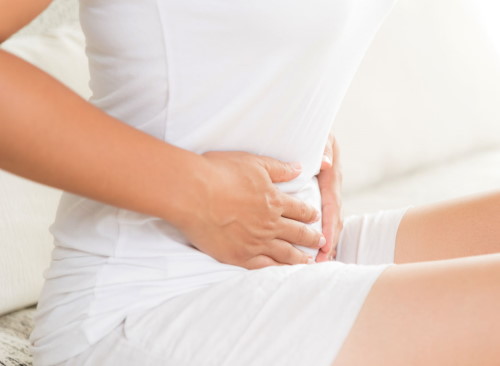Did you know that your body is made up of about 60% water? It seems like a lot, but it’s true. And when your body decides to hold onto that water, aka “water weight,” it can make a big difference on the scale and in how you look and feel. Is there anything you can do to lose water weight or to prevent yourself from holding onto it in the first place? The answer is… yes!
What is Water Weight?
BREAKING: 1 Cup of This Melts Belly and Arm Fat (Take Before Bed)
First, let’s examine what constitutes “water weight.” Water weight is when your body holds onto more water than it needs. This can happen if you are not drinking enough water and your body feels that dehydration may be imminent. If you are dehydrated, your body will tend to hold onto as much water as it can just in case it doesn’t have access to water in the near future. This excess water weighs quite a bit and can cause your scale weight to fluctuate pretty dramatically. You may even find that you feel bloated, and when you look at your fingers, ankles, and abdomen, you may notice bloating there, too.
Your body can hold water for a variety of other reasons as well.
What Causes Water Weight?
So, what causes your body to hold onto more water than it needs? First and foremost, your body craves balance. That means your body wants to keep your water levels, sodium levels, and electrolytes in the proper ratios. If you become dehydrated, even slightly, your body will attempt to hold onto water to regain that balance.
Another big cause of water weight is eating carbohydrates. For every gram of carbohydrates you eat, your body holds three grams of water weight. As you can imagine, that can add up pretty quickly. That’s why you tend to see people drop a lot of scale weight when they first start a diet. It’s because they are typically cutting back on carbs, which means they are going to naturally release a lot of water weight quickly.
Stress is another factor when it comes to water weight. When you are stressed, your body releases a stress hormone called cortisol. Cortisol affects a number of different mechanisms in the body like your metabolism, inflammation, your blood sugar levels, your mood, sleep cycles, and even your libido. A lot of things can contribute to high stress levels and have you holding water. Believe it or not, even a simple lack of sleep can have you holding onto extra pounds of water weight.
Eating processed foods can also have you holding onto water weight unnecessarily. Processed foods are typically loaded with sodium (which makes you retain water) and the chemicals and preservatives found in processed foods can also make it difficult to release water weight (or even body fat for that matter).
How Can You Lose the Water Weight?
1. Drink More Water
This may sound completely counterproductive, but the number one way to lose water weight is to drink more water! Yes, as crazy as it sounds, it’s true! Drinking enough water lets your body know there’s no danger of dehydration.
Your body is such a well-oiled machine, it gets nervous when it senses there may be an impending drought and it pulls back, holding onto every molecule of water. Giving yourself more than enough water on a regular basis lets your body know there is nothing to worry about, and it can relax and shed water weight.
And, there’s more good news. Not only does water intake increase the amount of water your body will release, studies show that drinking more water causes you to eat less… and you know what that means—improved weight loss. Yes, water helps you feel full and that helps you take in less calories.
2. Go Low Carb
Because carbs cause your body to hold water, it makes sense that going low carb can help you lose water weight. If you’re going to eat carbs, do so strategically, remembering that you will have a certain amount of water weight gain, depending on how many carbs you ingest. So, don’t go crazy when you see the scale weight after a carb-rich meal, knowing that as soon as you reduce those carbs, that water weight will fall right off again.
3. Switch to Healthy, Whole Natural Foods
Your body will thank you as you notice more energy, an improved immune system, better sleep and digestion, and yes, the release of excess water weight. When your body doesn’t have to fight through chemicals, additives, and preservatives, it feels safe in releasing extra water.
4. Reduce Your Salt Intake
Yes, it’s true… a diet high in sodium can cause a host of health issues, and one of those is water retention. Simply staying away from processed foods will immediately help you reduce your sodium levels. Next, watch the amount of salt you add to your food. A good practice to adopt is to taste your food first before automatically sprinkling on the salt. You might find that it’s savory enough without needing to add any extra sodium to it.
5. Get Plenty of Sleep and De-Stress
Yes, it can be as simple as that. Lowering your cortisol levels and allowing your body to relax can go a long way toward getting rid of water weight naturally.
Other Benefits of Staying Hydrated
TRENDING: Shed 42 lbs In 30 Days With This Simple Night-time Pill
Not only will drinking plenty of water help you lose the water weight, you’ll also enjoy an increased metabolism and easier fat burning and weight loss. As your diet improves and you nix the processed foods, replacing them with whole natural foods, you’ll be able to maximize your digestive system, lower your overall caloric intake, and more easily get rid of toxins and waste.
In addition, you’ll be able to think more clearly, your skin will become more supple and clear, and your joints will feel cushioned.
How much water should you drink? The standard answer is that everyone should get at least 8 eight-ounce glasses of water a day. But, more is better. Many folks will drink up to a gallon of water a day, especially if they sweat a lot or they live in hot climates.
And remember the old rule of thumb: don’t wait until you’re thirsty to drink water. Once you feel thirsty, you’re probably already dehydrated and well on your way to unnecessary water weight gain.









